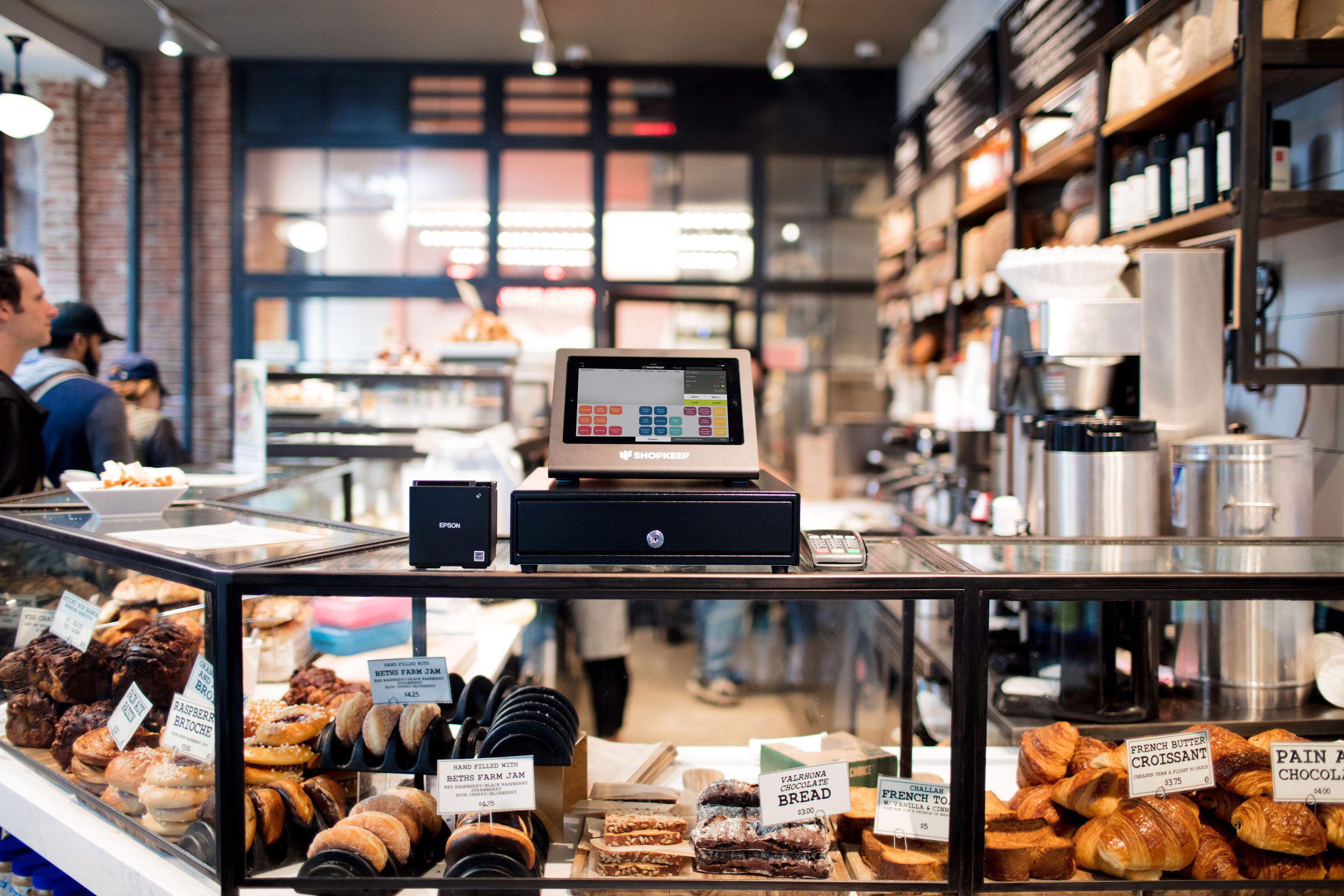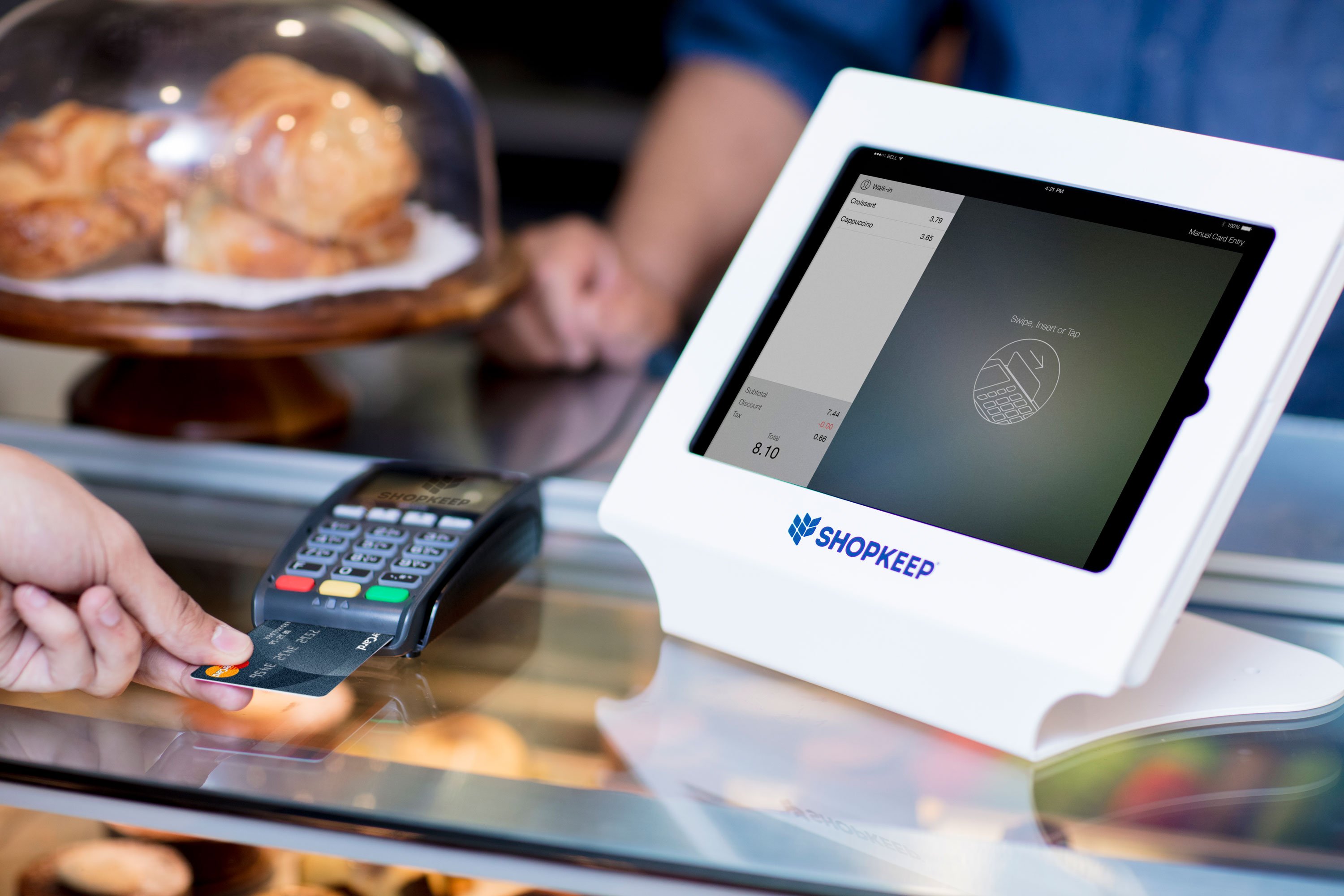The Payroll Blog
News, tips, and advice for small business owners
- Home
- Resources
- Payroll Blog
- 3 Benefits of Adopting Retail Store Management Software
3 Benefits of Adopting Retail Store Management Software
Retail store management software has come a long way in the past decade. It's now more affordable, scalable, and efficient than ever before. Advances in hardware technology, data communication technology, software development, cloud computing, and the widely accepted "Software-as-a-Service" (SaaS) business model have created the perfect storm and paved the way to change the way retailers do retail.

Small business owners take note: we're talking to you. You no longer need to spend tens of thousands of dollars on a bulky, antiquated point of sale system that can only do half the things you want it to do and a million things you don't need it to do. You no longer need to struggle with manually piecing together various layers of your business to create a comprehensive view of business performance. In this digital age, you can customize your retail store management software and handpick a solution that works best for your unique business.
What is Retail Management Software
Before you can understand the benefits of adapting retail store management software, you first need to know what it is. Retail management software can be defined as a software application or set of software applications (often integrated into one another) that help retailers operate their business. For retailers, the most vital component of their management system is their point of sale (POS) system. POS systems are necessary because they are where all the action happens and is tracked —and by action, we mean sales.
Since sales are at the core of understanding retail business performance, it only makes sense to build upon this infrastructure —providing more business management tools in the POS environment and creating an entire retail management ecosystem.
It is now common practice to use your point of sale system not only to manage and track sales, but also serve as your inventory management system, your employee management system, customer relationship manager (CRM), and your core reporting tool. All your fundamental business needs can therefore live under one umbrella...and if that's not an upgrade from your grandfather's cash register, then we don't know what it is.
"It Makes Economical Cents"
Like we said, retail store management software has come a long way, especially in the past decade, and it has created a lot of flexibility for business owners around functionality and cost. Software companies have done a good job leveraging the SaaS model to deliver features based on the needs of merchants, small to large. Some use a la carte methods in which any size business can turn on certain features for a small additional fee. Others have gone as far as to create free versions of their software to help attract even the most skeptical of customers and micro merchants.
For example, if you're a small retailer and you want to have a customer database to keep track of your customers' purchase histories and contact information, you'll want to ensure that your POS system includes such CRM functionality. You will also want to understand how it works to make sure it is tracking everything you want it to and be aware if there is any additional cost for this feature and any customized fields or requirements.
Providing different offerings for retail software based on the size of a merchant's business has helped drive down the cost of entry for retailers who want to implement this type of technology. While startup costs are at an all-time low, especially when you take free versions into consideration, there are a few things you must remember. You may need to purchase hardware. Yes, there will likely eventually be a cost for software (free does not always mean better). And there may be maintenance or recurring fees, but all this is a small price to pay in the larger context of business efficiency — which we will explore further in a subsequent post.
So, before you dive right in and buy something because it looks cool or because other business owners swear it's the greatest retail innovation since credit cards, here are some things to consider before implementing a retail management system:
- Understand the total cost of ownership. Are you buying the software outright as a one-time purchase? Will you need to purchase updates in the future? Are you paying a recurring fee for an as-a-Service model that includes future updates and releases?
- Is there an upfront hardware investment for the POS or can it be included as part of a recurring fee?
- Are you locked into a contract or can you cancel at any time?
- Ask the vendors you are considering if they offer a free trial and are willing to let you test the waters before you dive in.
- Scalability. What works for your business today might not work for your business next year. Make sure the software can adapt to your growing business needs and is a system that will be able to mature with you.
Improved Efficiency
If nothing else, retail store management software should make your business more efficient. After all, the point of spending money on retail management software is to automate operational tasks and business processes so that you're not stuck doing them the old-fashioned (read: manual) way. With sales and inventory systems like retail POS software, newfound efficiency has become accessible for business owners everywhere.
One area of improvement you will see when moving from a cash register to a POS system is the overall speed in which you can complete business activities. Your checkout process will be faster, which will make customers happy. Inventory management will be easier, which will make you a more productive business owner. Your accountant will be happy that he or she no longer has to track sales or employee hours via paper receipts and logbooks.
For example, if you're a retailer still using a traditional cash register, it's safe to say that your employees are using some other system or method to clock-in and out for their shift. You now have to keep track of that information somewhere else and piecemeal this information (along with all your other employees' hourly records) over to your accountant to ensure that payroll is submitted in a timely fashion.
Now imagine you're a retailer running a business centered around technology and not having to do any of that. You also get some extra perks to boot. How much more efficient would your business be? The answer is, probably a heck of a lot. Now, your employees can come in for their shift and clock in on the POS system. At the end of the week, you can log into the back office to view or export the employee hours and send them off to the accountant. Or, if your POS is super fancy or integrated with an online payroll service, it may be able to process payroll for you with just a few clicks.
Some added benefits to employee management through POS are:
- Commission and Payroll Accuracy. Most POS systems will not let an employee ring up sales if they are not clocked-in, therefore all hours and sales are accurately accounted for.
- Assigning levels of access. Unlike cash registers where all functions can be used by everyone, a POS will allow you to assign permissions to your staff. For example, you may only want to allow managers to process returns, not employees. During a return, the POS will ask for a manager to approve the transaction in order to continue. A manager would punch in their code (and possible reason for return) and the employee could then complete the return process.
- Sales insight. Detailed shift reports give you a better understanding of who's selling what and help you identify your top employees.
Greater Accuracy
Nothing rewards a business owner with incremental time gains like accuracy. There is something to be said for doing things right the first time, but we are all human, and we make mistakes. However, when you have a digital footprint to help guide you through those mistakes to make corrections, it's like fitting the last puzzle piece into place.
Retail store management software can significantly improve accuracy across all facets of your business. By automating things such as barcode scanning at checkout and for inventory purposes, you can significantly decrease the impact human error will have on these areas. By decreasing the impact here, you will by default decrease the impact it has on your reporting. Thus giving you a more sound view of your business performance.
With a POS system, there is much more that goes on behind the scenes when a customer makes a purchase. First, that item is deducted from inventory. If a merchant sets up an order trigger, the trigger will be activated, and the merchant will be automatically notified. An order trigger is a notification that is triggered when an inventory item falls below a specified quantity. These triggers are used to notify merchants that the item needs to be replenished. Secondly, that item and transaction will be included in all the necessary reports such as end of day reports, gross sales, items sold, employee shift reports and customer reports. The list could go on and on, but you get the idea. Lastly, you now have a digital footprint of the entire transaction. You know what time it occurred, what cashier processed it and from what register, you can identify the customer that made the purchase, and you are aware of their method of payment.
By improving accuracy, you are also giving yourself the gift of time. Here are a few ways to shave off hours in your workday:
- Inventory management. Using a barcode scanner for inventory intake and at the point of sale will shave days off your life as a retailer.
- Employee management and accountability. There is no more of the "it wasn't me excuse" when it comes to tracking employee activity on the POS.
- Reporting. Tracking all your business activity through your POS will ensure your reports are accurate, so there is no need to backtrack and look for mistakes.
Although there are so many more benefits to adopting retail store management software than what's mentioned here, these 3 are what we consider the roots' or the foundation of all those other benefits we didn't specifically mention.
July is Independent Retailer Month—we've partnered with ShopKeep on a three blog series focused on small business tips, with a special emphasis on retail business. In their first post, they covered how to set key performance indicators and track the metrics that matter for small business.
Author Bio: As Content Writer at ShopKeep, the number #1-rated iPad Point of Sale System, Nicole Walters leverages her background in communications and her extensive experience in the payment and POS industry to create valuable content that addresses real problems and solutions for small business owners.
Related Blog Posts
View Our Plans and Pricing
Small Business Is Our Business.
This website contains articles posted for informational and educational value. SurePayroll is not responsible for information contained within any of these materials. Any opinions expressed within materials are not necessarily the opinion of, or supported by, SurePayroll. The information in these materials should not be considered legal or accounting advice, and it should not substitute for legal, accounting, and other professional advice where the facts and circumstances warrant. If you require legal or accounting advice or need other professional assistance, you should always consult your licensed attorney, accountant or other tax professional to discuss your particular facts, circumstances and business needs.


